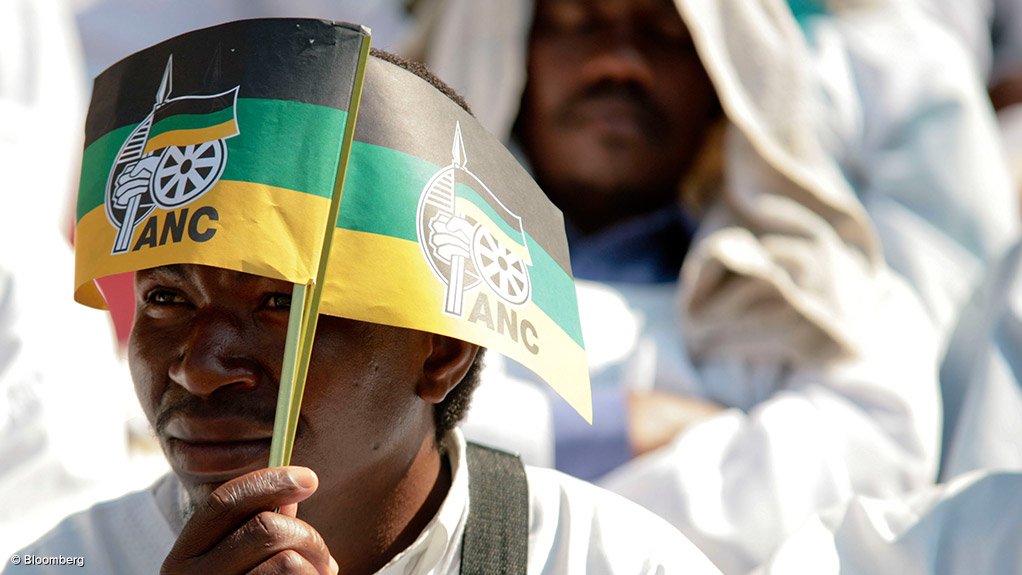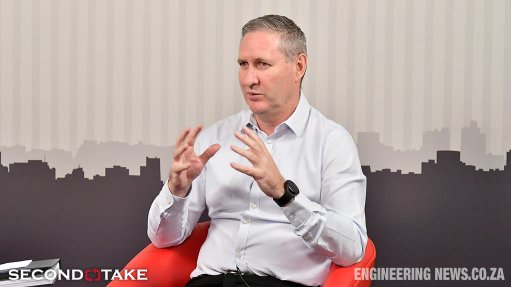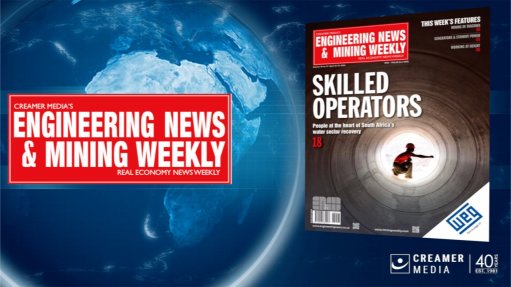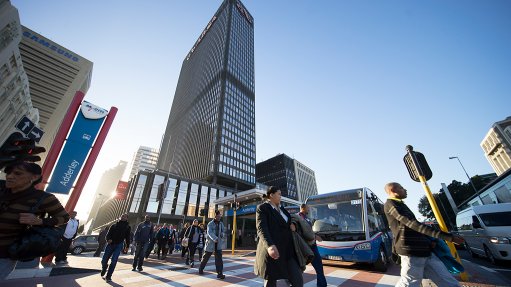ANC, alliance to discuss 'crisis of unity'
The African National Congress (ANC) and its alliance partners are meeting this week to discuss what has been described as a 'crisis of unity' created as far back as 2005.
National leaders of the ANC, the South African Communist Party (SACP) and the Congress of South African Trade Unions (Cosatu) are attending the summit, which started on Saturday in Pretoria.
They are expected to discuss issues facing the embattled trade union federation and the alliance as a whole.
Last year, Cosatu expelled its biggest affiliate – the National Union of Metalworkers of South Africa (Numsa) – and earlier this year its general secretary Zwelinzima Vavi.
The federation has been plagued by infighting between factions who support its president Sdumo Dlamini and those who supported Vavi.
According to political analyst Aubrey Matshiqi, the crisis in the alliance is typified by ructions in Cosatu.
"The weakest link in the alliance at the moment is Cosatu," he told News24.
"Others may say this is incorrect because the origins of what we see in Cosatu are in the ANC. If this is so, then the weakest link [in the alliance] is the ANC."
It could be argued that the ANC is failing to play its role as leader of the alliance and so failing to unite it.
He expects the summit to examine the state of Cosatu, the state of the alliance as a whole and matters of national importance, including next year's local government elections.
"Resolutions will mainly be about strengthening the alliance, giving support to Cosatu to deal with its internal crisis. But irrespective of these resolutions I can assure you a year from now we will be having the same discussion about the strength of the alliance," Matshiqi said.
Political analyst Daniel Silke said the alliance was in a policy paralysis and was decaying.
"There is no consensus on how to fix the deep-rooted problems," he told News24.
"The real disagreement is around economic policy ... and how to react to the poor performance of the South African economy."
The alliance is feeling electoral pressure because of next year's local government elections, when the ANC will be fighting to hold on to the metros, he said.
During the summit the alliance will look at short-term political fixes to keep it on track.
There is increasing dissatisfaction with the leadership of President Jacob Zuma.
"Zuma has not necessarily turned out to be the fixer of all ills," said Silke.
Matshiqi said the current problems in the alliance started in 2005 when then-president Thabo Mbeki fired Zuma as deputy president.
"The ANC was divided into two factions and its allies, instead of making choices that would help solve the internal crisis ... took a narrow sectional position," he said.
The biggest problem at the ANC's 2007 Polokwane conference was the "Zuma coalition", which was not united by principles or ideology but by their dislike of Mbeki.
"It's not surprising you now end up with an EFF, Numsa being expelled, [and] Vavi being expelled is a result of factions formed at Polokwane. Once they recalled Mbeki that thing which binds them together is gone."
The election of Zuma at Polokwane raised expectations, including that ANC members would be in control of the party.
At the time Zuma's supporters argued that the party had become over centralised around Mbeki and those close to him.
They argued that under Mbeki the alliance had become marginalised.
This did not seem to change under Zuma.
"Expectation was that the alliance would be the strategic centre, but in 2010 at the National General Council, Zuma made it clear that the ANC, as the leader of the alliance, would be the strategic centre," said Matshiqi.
The ANC would inform policy, not the alliance.
However, people are now trying to distance themselves from the problem caused then when Zuma was elected and are trying to influence how history judges them, he said.
"There is a refusal by all to own the crisis."
Matshiqi said the question that needs to be asked is whether it is time for the alliance to separate and from time to time there have been voices in the ANC arguing for that.
He said it was always understood that the alliance would break up once it had reached its historical mission, but some argue that it is still far from that.
Others said it would break up when contradictions between the partners became untenable.
"It's common cause that contradictions in the alliance have become sharp," said Matshiqi.
"[However] they will say the historical mission is not complete and so the alliance must continue and that the challenges are not insurmountable and so the challenge is to get the alliance back on track."
On Friday the Mail & Guardian reported that the SACP regretted that it had created a cult around Zuma.
According to a leaked SACP document, it was reportedly heading for a tripartite alliance meeting divided over what position to take.
The SACP has since denied the report.
Speaking at the 60-year commemoration of the Freedom Charter on Friday, SACP general secretary Blade Nzimande accused the Mail & Guardian of being an "opposition tabloid" which used "gutter journalism".
According to the document, which is on the Mail & Guardian's website, the SACP felt the ANC's 2007 Polokwane conference and the recall of Mbeki was a turning point for the alliance that opened up new terrain and prospects but also carried "baggage".
"The struggle against the 1996 class project often became over-personalised (as if the displacement of cde Thabo Mbeki in itself would end the project), and the solution to the problem also at times became excessively individualised around the person of cde Jacob Zuma," it reportedly said.
The SACP had labelled the ANC leadership and strategic vision under Mbeki as a 1996 class project.
"This 'baggage' from Polokwane (inevitable as it might have been) has since had some negative impacts within Cosatu and in the relationship between Cosatu and the SACP," it said.
According to the document a more substantial point of weakness in the post-Polokwane alliance is the failure to develop an effective joint programme of action.
"With the notable exception of election campaigns, since 1994, the ANC has failed almost entirely to lead its alliance in grassroots campaigns that mobilise its mass constituency. (The recent important anti-xenophobia mobilisation is an encouraging partial exception)."
Comments
Press Office
Announcements
What's On
Subscribe to improve your user experience...
Option 1 (equivalent of R125 a month):
Receive a weekly copy of Creamer Media's Engineering News & Mining Weekly magazine
(print copy for those in South Africa and e-magazine for those outside of South Africa)
Receive daily email newsletters
Access to full search results
Access archive of magazine back copies
Access to Projects in Progress
Access to ONE Research Report of your choice in PDF format
Option 2 (equivalent of R375 a month):
All benefits from Option 1
PLUS
Access to Creamer Media's Research Channel Africa for ALL Research Reports, in PDF format, on various industrial and mining sectors
including Electricity; Water; Energy Transition; Hydrogen; Roads, Rail and Ports; Coal; Gold; Platinum; Battery Metals; etc.
Already a subscriber?
Forgotten your password?
Receive weekly copy of Creamer Media's Engineering News & Mining Weekly magazine (print copy for those in South Africa and e-magazine for those outside of South Africa)
➕
Recieve daily email newsletters
➕
Access to full search results
➕
Access archive of magazine back copies
➕
Access to Projects in Progress
➕
Access to ONE Research Report of your choice in PDF format
RESEARCH CHANNEL AFRICA
R4500 (equivalent of R375 a month)
SUBSCRIBEAll benefits from Option 1
➕
Access to Creamer Media's Research Channel Africa for ALL Research Reports on various industrial and mining sectors, in PDF format, including on:
Electricity
➕
Water
➕
Energy Transition
➕
Hydrogen
➕
Roads, Rail and Ports
➕
Coal
➕
Gold
➕
Platinum
➕
Battery Metals
➕
etc.
Receive all benefits from Option 1 or Option 2 delivered to numerous people at your company
➕
Multiple User names and Passwords for simultaneous log-ins
➕
Intranet integration access to all in your organisation




















